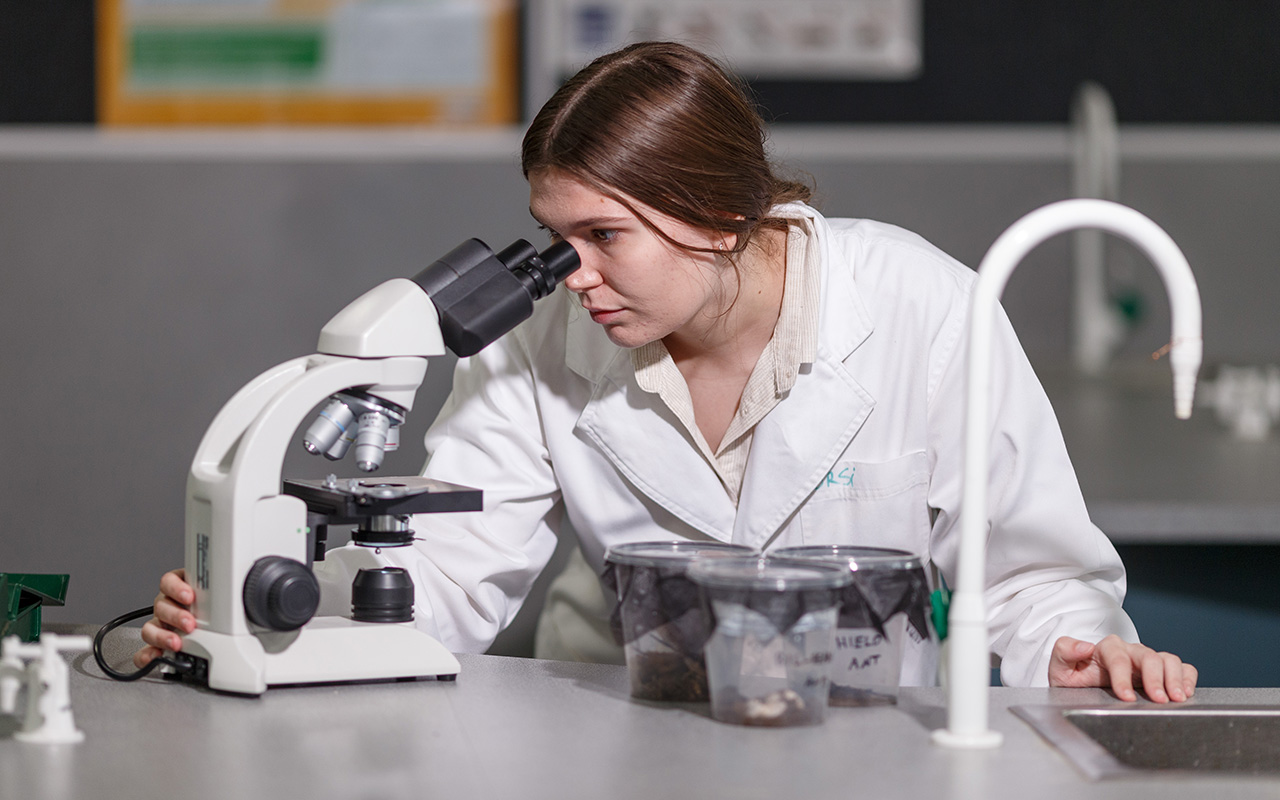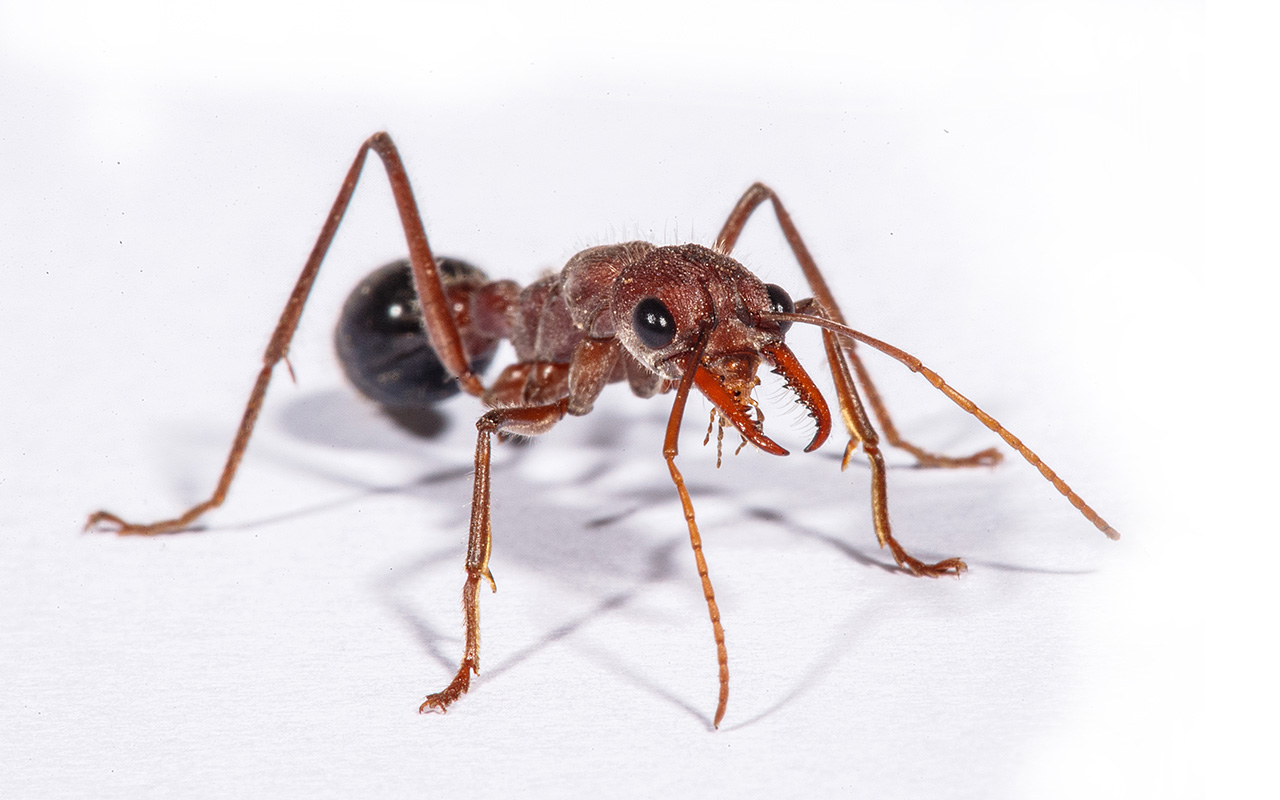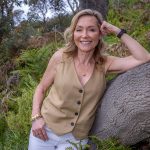
Frankston South ecologist Amelia Carlesso is passionate about ants. It wasn’t what she expected to specialise in, but once she discovered their vital place in the ecosystem, she wanted to know more. Amelia has always been driven by curiosity and a genuine spirit of inquiry – excellent qualities in a scientist.
Growing up with Sweetwater Creek in her backyard meant she spent a lot of time in nature exploring and observing. “Living on the Peninsula, we are so lucky to have all of these lush wooded areas,” she says. While she loves the abundant local flora, she has always been drawn to fauna.
When Amelia was a child, her aunt had a horse and she fell in love with everything equestrian. Then the family got their beloved Jack Russell and Amelia considered being a vet. As a teen, she dreamt of travelling to Africa to work with lions, rhinos, giraffes and elephants.
In high school, at John Paul College, Amelia studied chemistry and biology achieving the highest marks in her biology class. Immunology was part of that study and it really intrigued her. So, when she went Monash University, she did a double major in Zoology and Immunology, earning a Bachelor of Science with honours.
“Zoology looks at the external structures and struggles of the animal in its environment, but with immunology, under the microscope, I look at all the little building blocks that make up the animal and what’s going on in there. I can see its internal struggles and get to know the mechanisms inside the body too,” she says.
Working as a field ecologist with Wildlife Unlimited, Amelia learned land surveying, GPS tracking and camera trapping before going on to La Trobe University to become a Graduate Research Assistant in the Insect Ecology Lab. The position just happened to be looking at ants so she sort of fell into the speciality, but she loves it.

“There are 15,000 described ant species alone and scientists think there are probably 15,000 undescribed species.
Amelia views ants as tiny mysteries. Previous work in her honours degree course made her the perfect candidate for a research assistant placement because she had field experience and transferable skills. She already knew how to do science well.
While many people dislike bugs, Amelia respects them. “As humans we tend to gravitate towards vertebrates, cuddly things, the ‘charismatic animals’ so invertebrates get ignored, but they are so important. They are the backbone of our ecosystem. Invertebrates represent the bulk of biodiversity; 97% of animal biodiversity are invertebrates. Without insects, we wouldn’t have anything else,” she says.
“There are 15,000 described ant species alone and scientists think there are probably 15,000 undescribed species. There is so much more than little sugar ants, carpenter ants or bull ants. The variety is mind boggling. The world of bugs is like science fiction,” she says.
Ants are a vital link in the ecosystem. “They can bring back our degraded landscapes. They help with soil turnover which aerates the soil, bringing in oxygen, and they help with soil breakdown which cycles nutrients into the soil. This benefits the environment. Ants are also important in the food web scheme,” she explains.
They are also role models in the value of cooperation if nothing else. Humans could learn a few things from ant behaviour. Ants are social insects that help one another working almost as one animal. They may also be a barometer for climate change; their thermal limits could telegraph climate change.
Joining the team in Ant Ecological Studies at La Trobe has been a major win. Amelia finds the diversity of the project exciting. There are so many things going on within it. As the research assistant, she gets to be involved in all aspects. Even better, Professor Heloise Gibb, who runs the lab, has asked Amelia to stay on for another two years.
A typical day in the field for Amelia involves visiting the site looking for nests, following ant trails to their source, collecting ants and examining their spectrum of traits. The research team discovers many interesting things. For instance, they were surprised to find that, under the right conditions, carpenter ants can live over a year. They can store food in their bodies and share it with other ants.
In future, Amelia would like to work on improving scientific communication to make research more accessible and easier to understand for the general public. She’s thinking about getting a Master’s degree in Biomedical Health and possibly a PhD in Ecology. She’d like to combine the two to work on health problems in animal populations.
Her key goal is to create positive change. “It’s the responsibility of current generations to create a comfortable and sustainable future for the next generations,” she says. If previous generations had felt this way, we’d be in a different world now.





